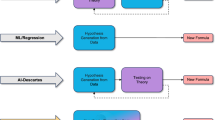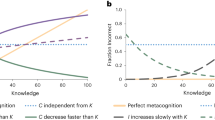Abstract
THE seeming contradiction in my summary account of the case of Galileo (NATURE, August 5, p. 180), to which Sir Oliver Lodge directs attention in his letter (NATURE, August 26, p. 277), needs an explanation. The great work of Copernicus (1543) was dedicated to a Pope, Paul III; none of the Roman Congregations found any objection to it, and (Whewell, “History of the Inductive Sciences,” I. 418, ed. 1847), says “lectures in support of the heliocentric doctrine were delivered in the ecclesiastical colleges.” This was because of its being taught as a purely scientific doctrine.
This is a preview of subscription content, access via your institution
Access options
Subscribe to this journal
Receive 51 print issues and online access
$199.00 per year
only $3.90 per issue
Buy this article
- Purchase on SpringerLink
- Instant access to the full article PDF.
USD 39.95
Prices may be subject to local taxes which are calculated during checkout
Similar content being viewed by others
Author information
Authors and Affiliations
Rights and permissions
About this article
Cite this article
CORTIE, A. The Influence of Science. Nature 110, 378 (1922). https://doi.org/10.1038/110378a0
Issue date:
DOI: https://doi.org/10.1038/110378a0



